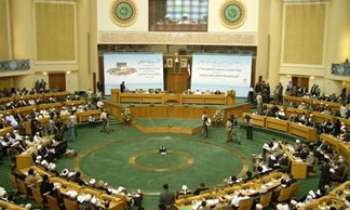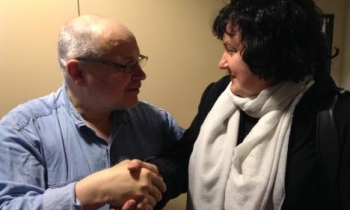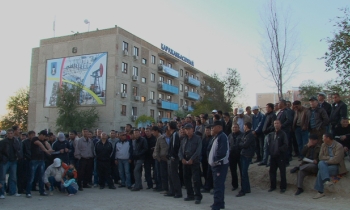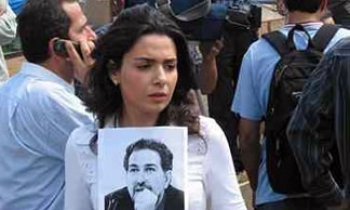NEW DELHI, September 5: The first casualty of war is the truth. And the reporters of the truth have been among the many casualties of the bloody conflict in Iraq. The truth dawns starkly on one when told that more journalists have been killed over the last two years in Iraq than were during the long-drawn Vietnam war.

More than 80 members of the news media have died since the war began in March 2003, according to figures compiled by the Brussels-based International News Safety Institute (INSI). More than half - 50 - were murdered by insurgents and other unidentified gunmen and bombers. American firepower is the next most significant cause of death.
A day after US forces shot down a Reuters cameraman in Baghdad, the INSI issued a statement on August 29 expressing concerning at the increasing number of journalists being killed in Iraq. The INSI director Rodney Pinder said, "Journalists are a vital pillar of any democracy. It is doubly disturbing when they are killed by armies that fight in the name of democratic values."
The statement went on to say, "There is no firm evidence that US forces have deliberately targeted the news media. But there is widespread suspicion that American troops do not take adequate precautions to try to ensure the safety of journalists. None of the other Coalition forces has killed any journalists."

Two days later, the US military confirmed that it had killed Waleed Khaled, the Reuters soundman, and even went to the extent of justifying the incident as "appropriate". Reuters cameraman Haider Kadhem, 24, like Waleed an Iraqi, was slightly wounded by flying fragments but survived in the passenger seat of the car, only to be detained for the next three days by US troops. Kadhem was using a small video camera.
Reuters is still seeking the release of a cameraman arrested by US forces three weeks ago who is being held in Abu Ghraib prison. US military officials say he will face a judicial hearing but have given no access to the journalist or say what he is suspected of. "This is simply unacceptable," said Committee to Protect Journalists (CPJ) executive director Ann Cooper. "Through these detentions the US military gives every impression that it is not accountable. That's a bad example to give the citizens of an emerging democracy."
In fact, it is more than a bad precedent being set in Iraq. The US is, unfortunately, sending out a wrong message to the entire world. On World Press Freedom Day (May 3) this year, Pinder had written, " In great swathes of the world, across many countries, murder is a relatively cheap, safe and easy way to censor the press. A probing reporter is silenced and friends and colleagues terrorised. And it will only get worse as long as a culture of impunity protects the guilty. Failure by governments to punish the killers can only encourage others." This is what makes the validation of the Khaled killing such a scary thought.

A trigger-happy soldier is always disconcerting to have around. It can be nightmarish if one has to drive through an area infested, so to speak, with such men. In March this year, US soldiers had fired at a car carrying an Italian journalist who had just been freed after a month in captivity, wounding her and another passenger and killing an Italian military intelligence officer. Giuliana Sgrena, 56, a reporter for the daily Il Manifesto, had to undergo surgery. The dead military intelligence agent, Nicola Calipari, had been engaged in negotiations to free Sgrena, and he threw his body over her to save her when the car carrying them to Baghdad International Airport came under fire.
US and Iraqi military forces routinely detain Iraqi journalists without charge or explanation, and some have been held for months. US military officials have voiced suspicions on several occasions that some Iraqi journalists collaborated with Iraqi insurgents and had advance knowledge of attacks on coalition forces. But the military has never provided evidence to substantiate any claims.
The International Federation of Journalists (IFJ) general secretary, Aidan White, said, "The number of unexplained media killings by US military personnel is intolerable. Media organisations and journalists' families face a wall of silence and an unfeeling bureaucracy that refuses to give clear and credible answers to questions." Waleed Khaled, 35, had worked for Reuters in Baghdad for two years and was a key member of news teams working in the capital. He left behind a wife who is four-months pregnant and a 7-year-old daughter.

The IFJ acknowledged that many of the incidents may have been unavoidable in the context of the war, but in a number of cases there are serious questions still to be dealt with that have given rise to suggestions of deliberate targeting of media staff. "We need to clear the air, but we also recognise that in a period of transition to Iraqi authority it is necessary to set the highest standards possible for the investigation and reporting of all incidents in which journalists and media staff are killed," said White.
The Paris-based Reporters sans Frontières (RSF) said, "We deplore the attitude of the US army in waiting nearly a week before recognising its responsibility in the incident that cost Waleed Khaled's life. Not only have they given ridiculous explanations but they have also failed to apologise to the family of the victims of this tragedy. We call for those responsible to be punished and we appeal to the US soldiers stationed in Iraq to be more discerning in the future."
Similar appeals had been issued to US forces time and again in the past, but had always fallen on deaf ears. Journalists continue to be collateral damage.









